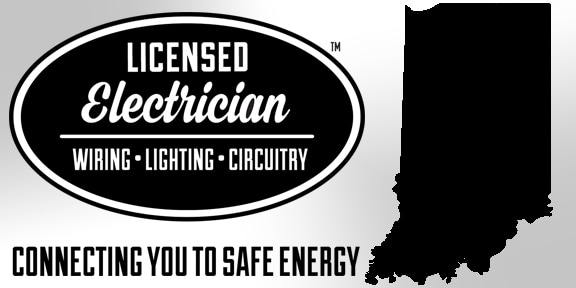
One may think there isn’t much involved in becoming a licensed electrical contractor. But in the U.S., tradespeople need to meet some tough requirements to get into the field. The field of trade skills provides professionals with lucrative career opportunities to specialize and offer services that improve the lives of others.
All aspiring tradespeople know that the most important thing they need to start working as a journeyman electrician or plumber is a license, but have you ever wondered why?
Licensing is important in almost all states across the U.S., and applicants need to complete a set of requirements before they can qualify for that, too. Each state has specific regulations and codes – without proper knowledge of these, tradespeople would be unable to work safely and professionally.
Licensing is also a way to give customers peace of mind when contracting services of tradespeople like plumbers and electricians; a license means they have updated knowledge about local codes and guidelines.
While some states require that tradespeople such as electrical contractors only need a single license to practice across the state, this isn’t the case all the time. In some states, such as New York and Florida, tradespeople need to get district-based agency licensing.

In this, the district licensing authority grants them a license which allows them to only practice in the vicinity of the district. This is common in states where each district has varying electrical codes as opposed to others. You can obtain a permit to work in other districts, but that also involves you completing certain requirements.
Working in the field of trade skills provides one with numerous career opportunities, no matter what skilled trade they set out to master. According to surveys by the Indiana Department of Workforce Development, there is set to be a 14.6 percent increase in the number of electrician jobs until 2024. Hence, it is currently the best time to start training and become a licensed electrician in Indiana.
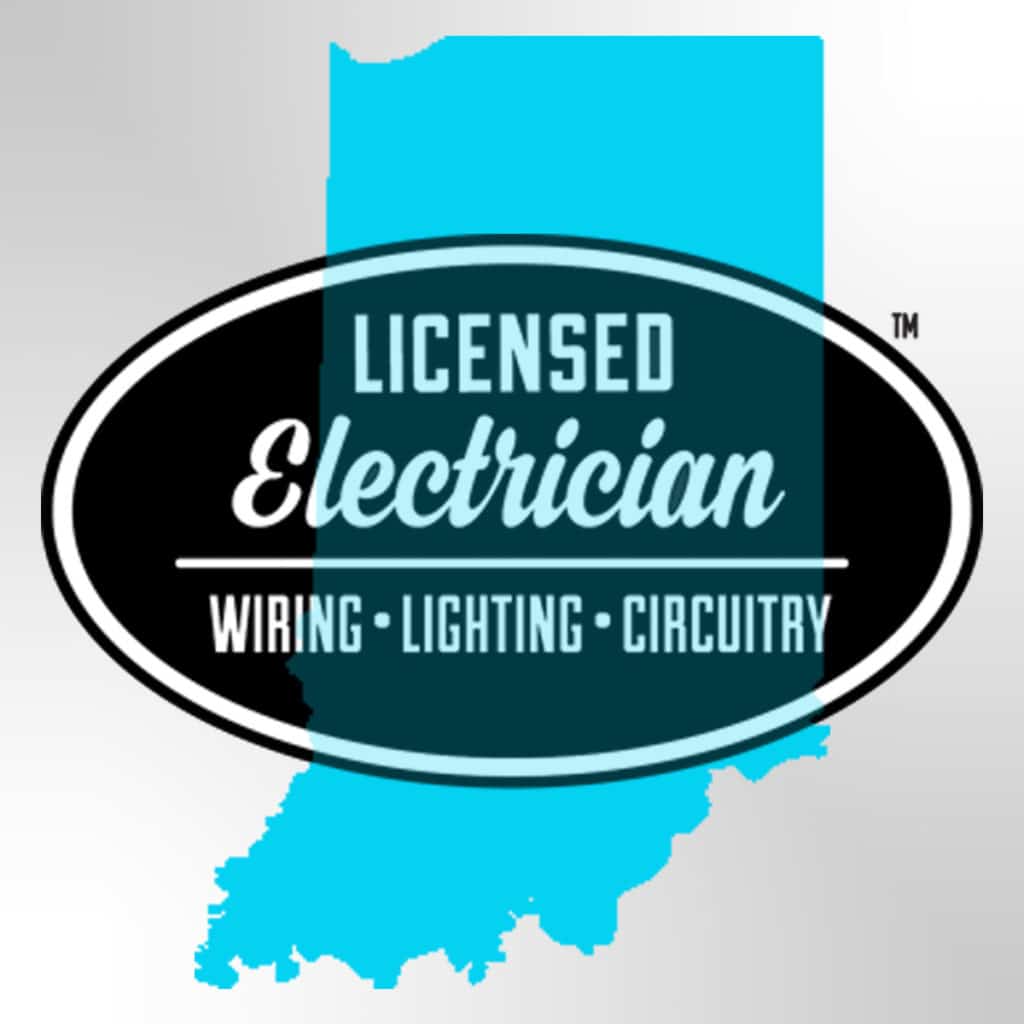
Currently, Indiana does not have a statewide regulatory board for electrical trade jobs, so licenses are only issued at a local level. Although you will be issued a license from the local government of the city you are employed in, you can practice statewide since compliance laws and practice standards are consistent. The guide to becoming a licensed electrician in Indiana is as follows:
Regulations for becoming a licensed electrician in Indiana vary according to the county and city jurisdiction. Generally, a journeyman electrician needs around 4 years’ worth of on-site practical work experience and 150 hours of classroom education in each year. Take a few of the main cities, for example
There are three main ways for aspiring electricians to gain the necessary classroom education required. They can enroll in a formal apprenticeship program, enroll in a JATC program, or attend a technical college.
This differs from one city or county to another.
Electricians earn a residential electrician license in Indianapolis, authorizing them to work on family homes under the supervision of a master electrician. Here is what you need:
You need to renew the license once every two years after earning it.
Here, you can earn a journeyman license, authorizing you to work on residential and commercial buildings under the supervision of a master electrician. You need to have worked for 4 years as an apprentice, having a total of 8,000 hours of experience.
You will take an exam that covers
Once you earn your journeyman electrician license, you can take it further by gaining enough work experience and applying for a master electrician license. Once you accomplish that, you can choose from a number of career opportunities, of which the most lucrative include working as an electrical contractor.
To begin with, you need to get a high school diploma. One of the benefits of joining the trade skill field is that you don’t need to take the four-year college route before you can start earning money. However, it’s still important that you graduate from high school. So if you dropped out, get your diploma or an equivalent, such as a GED, or if you’re still in high school, make sure to graduate.
It’s recommended that high school students looking to become electrical contractors choose their courses carefully – subjects like trigonometry and algebra are important, and you should start paying special attention in English and Physics class.
If you want to stand out from other students when applying for an apprenticeship, knowing the basics of electrical work can help. You can take up an electrician program at a local trade school or career college so you’re gradually introduced to the field of work. You’ll also gain some fundamental knowledge that gives you a head start when starting your apprenticeship.
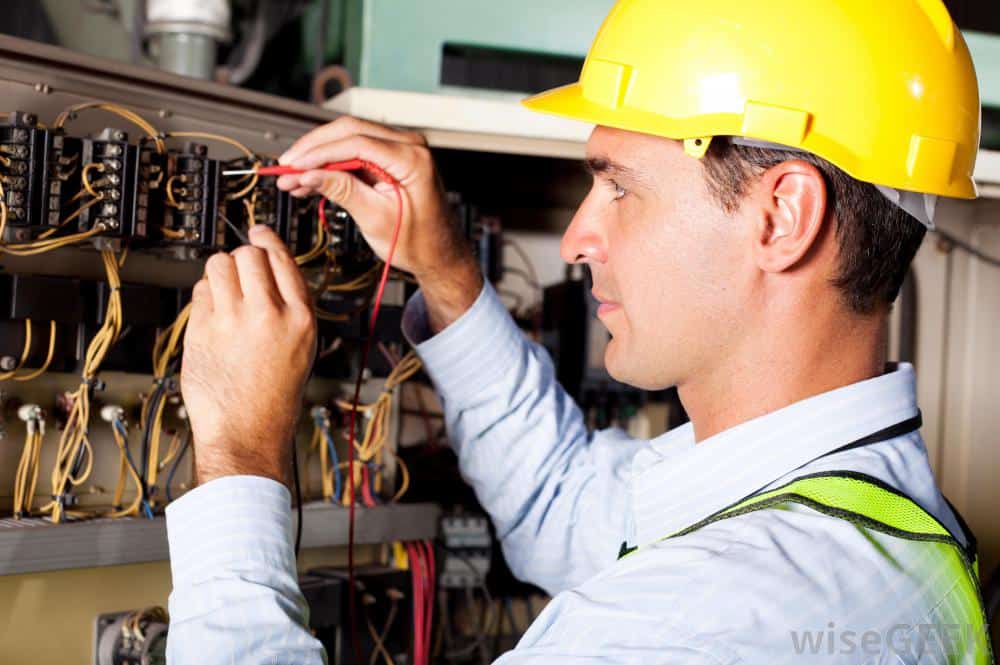
Plenty of trade schools also provide practical training in addition to theoretical instruction in the classroom.
Next, start researching apprenticeship opportunities under a licensed electrical contractor. The United States Department of Labor, online job boards, and newspaper classifieds are one way to find local apprenticeships in your area.
The application process for being an apprentice may differ from one state to the next. Usually, this includes an aptitude exam that tests your algebra, arithmetic, and reading comprehension skills.
Moreover, you’ll have to pass a job interview, as well as meet certain physical requirements and demonstrate an adequate level of mechanical skills. In some states, you’ll have to pass a drug test as well.
The aptitude test and entry requirements are why we recommend that applicants attend vocational school before thinking of an apprenticeship. These institutes can help you catch up on what you need to know to ace your application.
In a few states, apprentices need to register as ‘trainee electricians’ before being permitted to practice on job sites. This is common in states like Texas and California; it’s a simple process and only involves paying a minimal fee and filling out a form. Nonetheless, requirements may differ in your state, so make sure that you confirm with the local department of licensing, labor, or consumer affairs.
During your apprenticeship, you’ll complete courses on local electrical codes and theory, along with on-the-job training. You’ll be working under the supervision of a licensed electrical contractor or master electrician for a minimum of four years of training. Not to mention, you’ll also be paid on an hourly basis.
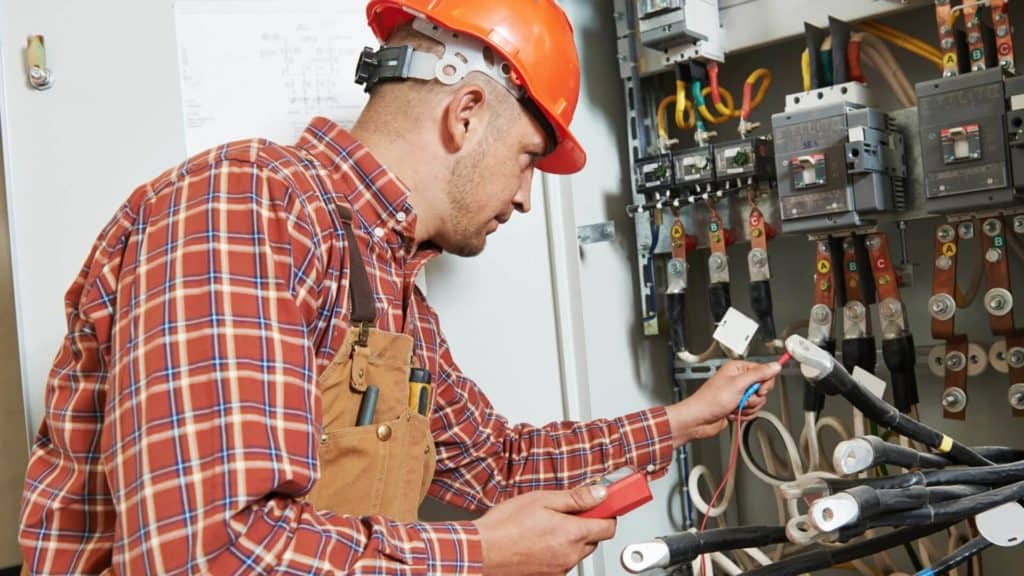
You’ll learn about essential concepts and gain plenty of practical experiences related to a typical electrical contractor job description.
Don’t worry if the curriculum sounds tough –initially, you’ll start with basic tasks before moving onto complex jobs. With each passing day, you’ll improve your practical understanding of important concepts and skills as well.
By the time you’re done with a four-year apprenticeship, you’ll be able to perform different kinds of electrical work that’s expected from a journeyman electrical contractor. You already have the skills – all that’s left is a license to prove it!
The common path to getting a license is to complete a set number of hours of on-the-job training and classroom training before taking an exam. The exam tests how well you understand building codes, local laws, safety practices, electrical concepts, and the National Electrical Code.
In some states, you’ll have to give a business-related exam that will help you set up your own business later on.
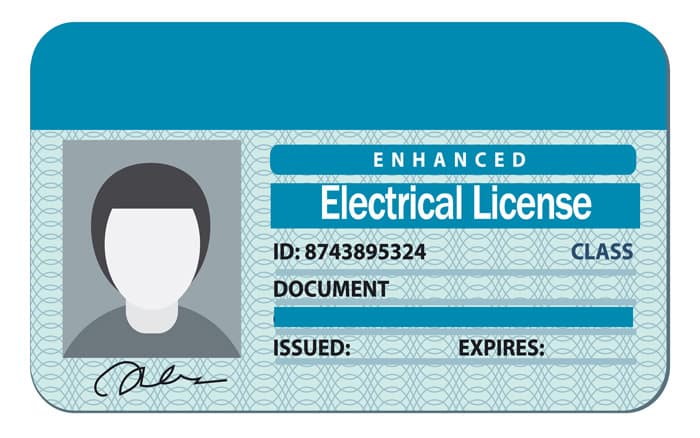
You can face penalties for working without a license and it’s also crucial that you renew your license periodically to retain licensure status. If you want to practice in another state, you’ll need to get a license for that state as well. However, if you have a district license, you can get a permit to work outside the area, but this can differ from state to state.
PHCEid.org is an advocate for the Plumbing, Heating, Cooling, and Electrical contractor to properly identify their licensed status for public awareness. Professional Contractors have the license or certification to work in homes and businesses. Without the proper certification and licensing to become a skilled trades professional, it compromises the integrity of the trade industry.
The contractors listed on the PHCEid.org website are licensed or certified according to the codes and laws set forth by each governing state and/or entity. Licensed Contractors work in compliance with local and state codes set forth by their governing trade industry board. Get more information at PHCEid.org or call 844-954-2367 today!
